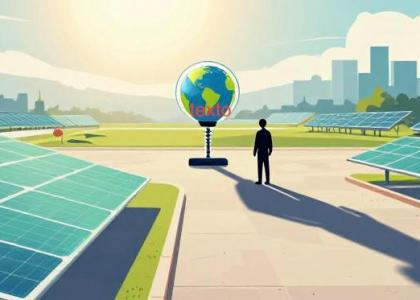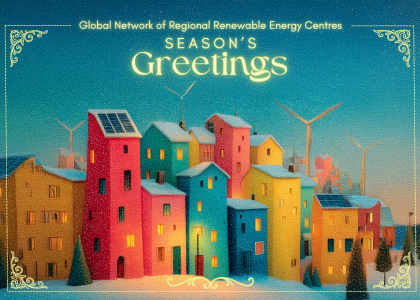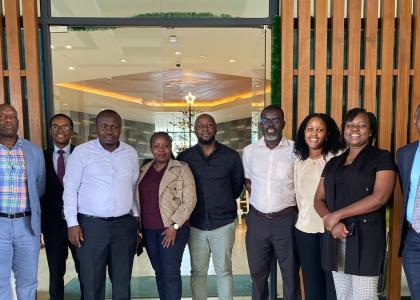The Club of Agencies and Structures in charge of Rural Electrification (CLUB-ER) held their 9th Annual Meeting in Abidjan, Côte d'Ivoire from December 10 - 14, 2012. In attendance were representatives from the European Commission, the Energy and Environmental Institute of French speaking countries (IEPF), the Alliance for Rural Electrification (ARE), the International Renewable Energy Agency (IRENA), the Photovoltaic Power System Program of the International Energy Agency Task 9 (IEA-PVPS Task 9) and its most recent partner organization, ECREEE.
Chaired by Mr. E. Noel Guetat, Chief of Staff of the Ministry of Mines, Oil and Energy, the meeting provided an opportunity for intending members to showcase the organisations and the potential benefits of joining the Club.
Following the presentation made by Mr. Mahama Kappiah, the Executive Director of ECREEE, on the Centre, its achievements, goals and the potential of its collaboration with the CLUB-ER, the members of the club unanimously agreed to have ECREEE as its partner, seeing that such a partnership will be pivotal to the achievement of a mutual objective, which is: expanding energy access to the rural populations in Africa.
The CLUB-ER is an operational workgroup dedicated to rural electrification in the African continent. The group is a product of an initiative of the French Agency for Environment and Energy Management (ADEME). Its first workshop was held in Francheville, Paris, in December 2002, with the participation of six African countries, namely: Cameroon, Côte-d'Ivoire, Morocco, Mauritania, Niger and Senegal. Since then its membership has grown to include seven additional ECOWAS Member States, namely: Benin, Burkina Faso, Ghana, Guinea, Mali, Nigeria and Togo.
With the partnership between ECREEE and the CLUB-ER, the role of the club in promoting rural electrification is projected to extend to the ECOWAS countries who are not currently members of the CLUB-ER, thereby covering a wider area than would have otherwise been achieved. Furthermore, this partnership places ECOWAS Member States at a more advantageous position to pursue renewable energy-based rural electrification programmes in their respective countries.





